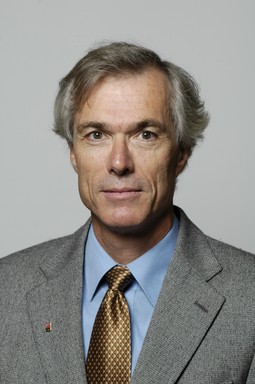Vermeer's Hat:
What 17th Century Dutch Paintings Reveal
of Our Global World
Currently on sabbatical at Oxford University, Dr. Brook is Principal
of St. John's College at UBC and holder of the Republic of China
Chair in the Institute of Asian Research. He received his doctorate
in History and East Asian Languages from Harvard University and was
an exchange student at both Fudan University and Peking University
in the 1970s. Awarded the Joseph Levenson Prize, Association for Asian
Studies in 2000, and the Garneau Medal, Canadian Historian Association in
2005, Dr. Brook is the author or coauthor of numerous scholarly works,
including Collaboration: Japanese Agents and Chinese Elites in
Wartime China; Opium Regimes: China, Britain, and Japan,
1839–1952; The Confusions of Pleasure: Commerce and Culture
in Ming China; and Quelling the People: The Military
Suppression of the Beijing Democracy Movement.
Special lottery draw
Followinhg the lecture, there will be a draw for tickets to the
Chan Centre for the March 14 lecture by Dr. Mohammad Yunus.
Please see his lecture page for details.
Background Information
(These references were compiled by
the webmaster in the hope that they will prove interesting to some readers.
The web being what it is, some of them will have vanished by the time
you go to look them up, and there is—of course—no guarantee
of their accuracy.)
-
Department of History, UBC, faculty page
-
Timothy Brook works on the social and cultural history of the Ming
dynasty, the Japanese occupation of China during World War Two,
and historical perspectives on world history and human rights. He
is currently working on two projects: wartime collaboration,
and cultural representations of torture. ...
-
Institute of Asian Research, UBC, faculty page
-
Dr. Brook's career as a China historian began during his last
two years as an undergraduate at the University of Toronto
(1969-74). He developed an interest in the Ming period while
he was an exchange student in Beijing and Shanghai (1974-76),
and continued to pursue this interest in the program in History
and East Asian Languages at Harvard University (1976-84). He
has authored four books in the field of Ming history, the most
recent of which, The Chinese State in Ming Society, will appear
shortly. The Association for Asian Studies awarded The Confusions
of Pleasure: Commerce and Culture in Ming China the Levenson
Prize in 2000 for the best book on the history of China prior
to 1900. Future projects include a general history of Yuan and
Ming China, the fourth of a five-volume series on the history
of imperial China which he is editing for Harvard University
Press. ...
-
Frontline Interview: Tiananmen
-
When the army first went in at the beginning of June, the
assumption on everyone's part is that it was acting according to
plan; that the army had been charged to go in, use a maximum show
of force and effectively intimidate anyone from ever trying this
again. My own research leads to a very different conclusion. I
see it as nothing but a trail of disasters from the first time
the army appears in Beijing on May 19.
The army was ill prepared. They had a plan of which units would
move in along which corridors to try and get to Tiananmen Square,
but the details of the operation were a shambles. The army went
in without sufficient provisions, without sufficient medical
teams. They didn't seem to anticipate the damage they would
cause. They didn't anticipate situations they would get in. APC
drivers didn't even seem to have maps of the city. The soldiers
didn't know how to behave. I think a lot of the soldiers had
never even been in a city before; they were country boys. They
didn't have the proper equipment; they didn't have the proper
training. It was a mess. ...

